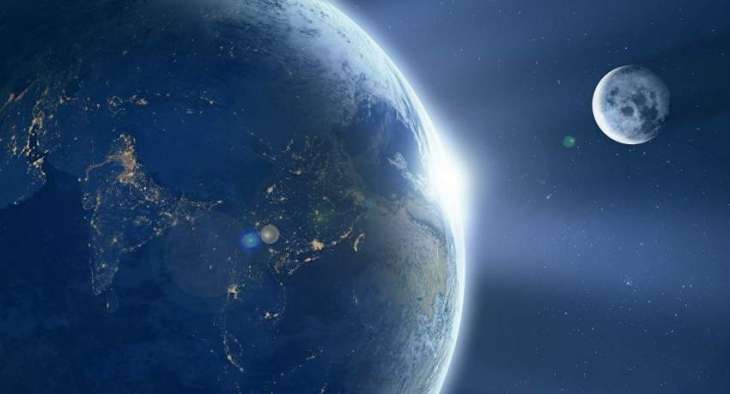NASA's partnership with private US companies, details of which will be announced on Thursday, will allow the United States to return to the Moon sooner than expected, NASA Administrator Jim Bridenstine said on Tuesday.
WASHINGTON (Pakistan Point News / Sputnik - 28th November, 2018) NASA's partnership with private US companies, details of which will be announced on Thursday, will allow the United States to return to the Moon sooner than expected, NASA Administrator Jim Bridenstine said on Tuesday."We are announcing new Moon partnerships with American companies at 2pm ET this Thursday. The U.S. is returning to the surface of the Moon, and we're doing it sooner than you think!" Bridenstine said in his Twitter account.
There is no information yet about which companies will work with NASA in implementing the US lunar program or how much it will speed up the process.
With the arrival of US President Donald Trump's administration, the country announced that it had resumed its lunar program, calling the return and constant presence of people on the Moon would be a step toward manned missions to Mars.
The United States temporarily abandoned its lunar aspirations after then President Barack Obama decided in 2009 to close the Constellation program, a manned spaceflight program that would have included a journey to the Moon, because of its high cost, delays and, as critics noted, the vague scientific basis for the program. NASA shifted its focus to Mars instead.
The 45th president of the United States, Donald Trump, who is controverting his predecessor in literally everything, did not lose sight of the issue: in 2017 he announced that the United States would return to the Moon.
In accordance with the plans announced earlier by the Trump administration, a lunar station, Lunar Orbital Platform-Gateway (LOP-G), should appear in the early 2020s.
US Vice President Mike Pence, who heads the US National Space Council, said in August that talking about flights to Mars without using the Moon as a stepping stone was "not much more than a mirage." According to him, the Trump administration is confident that the Moon is a key stage in the US space activities. He also said that a US crew would begin to work in the Moon's orbit by the end of 2024.
"It's not a question of if, it's just a question of when," Pence said.
In 2017, the United States and Russia agreed to create an international lunar station, but there is still no understanding as to which countries will become members of the program and what their roles would be.
Roscosmos head Dmitry Rogozin said that Russia would not participate in the creation of the station "as a member of juries" and be limited to the creation of a single module. He noted that NASA together with Roscosmos would revise the lunar station concept to make Russia's participation in the program more extensive.
While the Russian space agency has decided that it wants to focus on the Moon project, it has no concrete ideas on how to implement it. During a Moscow conference in which all the International Space Station (ISS) partner countries participated on November 19, Rogozin announced that Russia was interested in creating an international manned lunar station. At the same event, Russia's general designer of manned spacecraft Yevgeny Mikrin presented his country's lunar station project. The final version of the concept of the lunar exploration project with the participation of Russia is expected to be presented on Wednesday at a meeting of the Space Council of the Russian academy of Sciences in Moscow.
The US version of events around its project to create the Lunar Orbital Platform-Gateway, which will be funded with $504 million in 2019, implies that construction of the station in the lunar orbit will start in 2022, and the first manned flight to it will be in 2024. The landing of the US astronauts on the lunar surface, according to NASA's plans, will happen no earlier than in the end of the 2020s. According to Moscow's plans, Russian cosmonauts will visit the surface of the Moon for the first time only after 2030.




